The 50 best books on tech and finance
This is the new canon for the leaders of financial services in the digital age

One thing that comes with being an author is that you are continuously asked what books you can recommend in your area, in my case about tech and banking. So, over the years I have assembled a list of the 50 most important books every financial services professional should read. It includes essential volumes, some hidden gems, as well as brand-new titles that will shape how we approach banking for years to come. I have built the list around 10 categories.
Whether you are a captain of the financial services industry or aspire to be one, it is incumbent that you have a fundamental understanding of each of those ten key areas. You have to understand specific groundbreaking technologies such as blockchain, cryptocurrencies, or AI. You have to become aware of the new market logic by which to compete and what digital banking actually means. You have to realize the threat of Big Tech, as well as how best to compete or cooperate with fintechs. You have to get your head around basic concepts of technology and finance. And eventually you also have to comprehend which skills and competences this new world of finance will require, whether it is to boost your own career or to form a winning team.
Category 1: Blockchain and Distributed Ledgers
Blockchain Revolution: How the Technology Behind Bitcoin and Other Cryptocurrencies Is Changing the World by Don and Alex Tapscott
This is one of the first - and best - books to give a structured overview of blockchain and cryptocurrency. Despite the rapid progress of the industry it remains relevant up to this day as it is a good introduction to the technology enabling the crypto-economy. Since the publication Don and his son Alex have become major opinion leaders of the blockchain world. Blockchain Revolution is not focused on the financial industry as it covers everything from death certificates to land titles and voting records. Still, it is a great first step to get familiar with the workings and the potential of distributed ledger technology more broadly.
Life after Google: The Fall of Big Data and the Rise of the Blockchain Economy by George Gilder
This is an almost philosophical take on the disruptive potential of blockchain, yet without the often unfounded grand claims by crypto-fanatics. Gilder’s thesis is that the blockchain is the antithesis to Google and AI, the Holy Grail to many in Silicon Valley. But could Google really be brought down by a tech it invests so heavily in? While I continuously argue the opposite, namely that Google will use blockchain to break into banking, I highly recommend this thought-provoking and excellent book. Much blockchain literature can hardly be told apart due to its uniform content, so it is all the more refreshing to read Gilder’s arguments and sharp observations.
Blockchain Babel: The Crypto Craze and the Challenge to Business by Igor Pejic
I admit, I am biased on this one, but it if you are seeking to understand how the advent and the adoption of blockchain will shape the market for financial services this is your book. Nobody can predict which application or which coin will eventually rise or fall in value, but management theory is a good guide on how market players will react to blockchain. What I tried to do is to look at the history of groundbreaking innovation and apply the patterns scholars have studied to today’s market. In short, Blockchain Babel is a compass on how to compete in a blockchain-based world.
The real business of blockchain: How Leaders Can Create Value in a New Digital Age by David Furlonger and Christophe Uzureau
Just like Blockchain Babel this book is written for business leaders who want to go beyond the hype and learn about blockchain’s impact in a structured way. The authors are both working for Gartner, and have written a compelling account on blockchain from a management strategy perspective yet underpinned by real-life use cases such as the Australian Stock Exchange or the European Football Association UEFA.
Blockchain: The insights you need from Harvard Business Review by Don Tapscott, Marco Iansiti, and Karim R. Lakhani
This a Harvard Business Review collection of the most essential thinking on the blockchain phenomenon. It answers many of the big question surrounding distributed ledgers such as where the technology came from, who controls it, how safe is it, and what will it do to finance. This volume is recommended particularly for the C-suite as it also describes in which setups it makes sense to invest in blockchain solutions and in which areas of the enterprise they would have the greatest impact.
Category 2: Cryptocurrencies and Decentralized Finance
Digital Gold: Bitcoin and the Inside Story of the Misfits and Millionaires Trying to Reinvent Money by Nathaniel Popper
This is one of the first, but still best accounts of the stellar rise of Bitcoin and cryptocurrencies more generally. From the thrilling narration style you can tell that Nathaniel Popper is a New York Times tech reporter. Even people unfamiliar with the crypto-economy can easily grasp the major concepts while reading about the brilliant and unique, often eccentric and shady characters that have been driving the rise of an industry. Popper does a splendid job in shedding light on the global community of pioneers as well as those initial entrepreneurs and investors.
The read is entertaining, but more importantly it will allow you to comprehend the culture that nurtured cryptocurrencies, a culture which is still driving much of the present-day discourse, even though today classic crypto-believers are outnumbered by conventional investors.
The Currency Cold War: Cash and Cryptography, Hash Rates and Hegemony by David Birch
Birch offers an important overview of the various digital forms of digital currencies, of which cryptos are only one. Whether it is blockchain-issued fiat money or private money: those are all developments you must be aware of, even though they might receive less media attention than the current price swings of bitcoin and Ether. After reading The Currency Cold War you will understand how the future of digital currencies is also the future of geopolitical hegemony. Hence, I recommend this book particularly to leaders in the public and private sector so that they better understand the significance of projects such as Chinas digital Yuan and learn how to respond.
Proof of Stake: The Making of Ethereum and the Philosophy of Blockchains by Vitalik Buterin and Nathan Schneider
Vitalik Buterin is probably the most influential and prominent person in this canon. He is the genius founder of Ethereum, a blockchain that currently eclipses all other protocols. Unlike bitcoin, Ethereum can handle all types of assets, whether it is cryptocurrencies or NFTs. While bitcoin solved one problem, the application fields for Ethereum are limitless. Moreover, Ethereum can process so-called smart contracts. Those are pre-defined if-then scenarios that make money programmable. This is one of the major advantages blockchains have over traditional means of money transfer. If you are serious about mastering the future of finance there is no way you can evade Ethereum. So why not learn about it directly from its creator?
Understanding Decentralized Finance: How DeFi Is Changing the Future of Money by Rhian Lewis
This is a new title to be released in April but I had the pleasure to have a sneak peek before publication. It is a cutting-edge look at the amazing possibilities of the technology that have sprung up in the years after the inception of the first cryptocurrencies. So I suggest to first familiarize yourself with the basic concepts with the aforementioned titles – or Lewis’ first book The Crypto-Currency Revolution – before getting up to speed with the more advanced concepts of Decentralized Finance (DeFi) explored in this book. Lewis excellently illustrates how it can revolutionize collateralized loans, derivatives, margin trading, and liquidity provision by removing the technical need for a centralized authority. She also examines how regulators are responding to these seemingly exploding possibilities.
Defi and the Future of Finance by Campbell R. Harvey, Ashwin Ramachandran and Joey Santoro
DeFi is often dubbed the “Lego of Money” because you can combine multiple modules of decentralized finance to your liking and thereby create an entire autonomous financial universe instead of solely handling isolated use cases. Defi and the Future of Finance is a solid introduction to the space which comes with its own vocabulary that even people familiar with crypto have to learn.
The authors are lamenting all the ills of the traditional financial system. While at times the book contains much black-and-white thinking, bankers and financial professionals will do good to take note of the shortcomings they point out. I agree with the authors when they claim that reading this book will help you become a part of the disruption, rather than the target of it.
Category 3: Artificial Intelligence (AI)
Innovation Ultimatum: How Six Strategic Technologies Will Reshape Every Business in the 2020s by Steve Brown
Strictly speaking this is more than just a book on artificial intelligence. The Innovation Ultimatum is a guide to six disruptive digital technologies that will keep managers up at night: AI, distributed ledgers and blockchain, the Internet of Things (IoT), autonomous machines, virtual and augmented reality, and 5G communication.
Brown’s main thesis is basically echoing Clayton Christensen’s Innovator’s Dilemma: Companies can either innovate or they can die. This ultimatum creates an urgency I believe is anything but overblown.
Brown helps to ask the right strategic questions to master digital transformation and includes strategies to get started on each of the six technologies. Moreover, the book illustrates very well with use cases how to apply automation and data strategies enabled by the new technologies. In the final part, Brown shows the specific implications on large industries, which serve as a good inspiration of how to apply those approaches to your own company.
The Singularity is Near: When Humans Transcend Biology by Ray Kurzweil
Just like the preceding title, this is a strong illustration of the ever-accelerating speed of technological progress. But for Kurzweil there is no doubt that one technology is above all the others: Artificial intelligence. Or more specifically: the merging of human biology with computational AI capacities.
In today’s discourse AI is seen as an omnipotent tool. Managers and theorists alike often put forward the highly debatable claim that AI can fully mimic and even outpace human intelligence. Of course, this is not the case and Kurzweil, despite being enthusiastic about AI’s potential, acknowledges its limitations. The second problem with the AI discourse is that everything, even the most primitive pattern recognition, is dubbed AI, packaged as a groundbreaking innovation, and served to tech-hungry media and investors. All the more important that Kurzweil breaks down the individual modules that go into reverse-engineering the human brain. Pure software-specialists might find that it does not go deep enough, but therefore the book gives a broader look at all the important interfaces between humans and machines.
The Myth of Artificial Intelligence: Why Computers Can’t Think the Way We Do by Eric J. Larson
Eric Larson explicitly takes an opposing viewpoint to AI enthusiasts like Ray Kurzweil. Today hardly any technology is treated with such reverence as AI, but the discourse around it is mainly made up of widely-circulated myths. This book convincingly exposes the myth of algorithmic superintelligence and shows how to foster real inventions. This is not to say that AI is simply a buzzword without substance, but knowing the limitations and recognizing the myths surrounding the discussion is incumbent for decision makers. After all, human and machine intelligence is different not in degree but in kind. As good as computers get, there are some tasks that they will never be able to do such as producing real creativity or ingenuity. Whatever your view of AI, read this book.
The Technology Trap: Capital, Labor, and Power in the Age of Automation by Carl Benedikt Frey
What effect does technological progress have on the distribution of economic and political power? Frey will compellingly tell you as he looks at technology from the industrial revolution to AI and automation. Technological progress obviously reshapes entire economies and societies. But how exactly can only be said decades after a tech hits the world. Just like the industrial revolution had some devastating effects after workers first started flocking to factory floors so too will AI and other technologies that are reshaping our world today. Yet on the long run the tremendous benefits of such techno-economic revolutions always outshine the temporary negatives.
Advances in Financial Machine Learning by Marcos Lopez de Prado
From the very broad AI books to a highly specific one: As the title suggests, Advances in Financial Machine Learning looks at a particular sub-discipline of AI and describes how to feed algorithms with huge troves of data in order to use them in financial services, in particular in investment banking.
Larsen digs down deep into the details, so this book might not be the perfect fit for C-level executives, but rather middle-managers who have to design and set up machine learning projects. Finance is among those industries that offers the best preconditions for machine learning, but there are still many pitfalls this book will help you to avoid.
Category 4: Digital banking
Financial Services Revolution: How Blockchain is Transforming Money, Markets, and Banking by Alex Tapscott
Digital banking means a lot of different things to different people, but the most fundamental digitalization is probably occuring on the level of protocols. Financial Services Revolution describes how this is happening. While Tapscott’s first book Blockchain Revolution was a general introduction to the interested business reader, this is a great source for finance professionals with an advanced knowledge. The book boasts a collection of chapters written by top-notch blockchain thinkers that describe what the token and blockchain economy will mean for banking and financial services. It includes fundraising methods, new coin and token issuances, incentive schemes, cross-border payment processes, clearing and settlement – only to name a few.
Reinventing banking and finance: Frameworks to Navigate Global Fintech Innovation by Helene Panzarino and Alessandro Hatami
For a long time fintechs have been perceived as possible disrupters for banks. By now finance professionals have understood that fintechs will not be to them what Amazon was to book dealers, but rather these tech-native finance companies are seeking cooperation. Hardly any bank can claim to have succeeded in its digital transformation efforts without investing, buying, or cooperating with an agile fintech startup. But how to pull it off? Hatami and Panzarino take you on a journey through the world’s fintech hubs and not least thanks to a number of first-hand interviews they help you comprehend the rationale by which fintechs operate.
Banking on IT: How I Disrupted an Industry and Changed the Way We Manage our Money Forever by Anne Boden
Banking on IT is an insider account by the founder of Starling, one of the UK’s prime challenger banks. Anne Boden’s story is a great illustration how technology can be deployed to break even into a highly-regulated industry dominated by giants. If you find inefficiencies and manage to carve out a niche, while sticking to the strategies outlined in the previously reviewed books, it is possible to muscle your way in. This is an entrepreneurial story that incumbents should read as well. For those who are interested in what a neobank like Starling looks like from a user perspective I suggest to have a look at Boden’s first book The Money Revolution: Easy Ways to Manage Your Finances in a Digital World.
Bank 4.0: Banking Everywhere, Never at a Bank by Brett King
Bill Gates once said that banking was necessary, but banks were not. Is this statement really true? Brett King has a very clear opinion on that. And though I do not share it, this book is thought-provoking and takes readers to cutting-edge fintech use-cases around the world. Besides the large tech breakthroughs that the other books also talk about, Bank 4.0 talks about trends and terms such as embedded banking, always-on banking, voice banking, or experience banking. The book features chapters by well-known opinion leaders of the space such as Spiros Margaris or David Birch.
Digital Human: The Fourth Revolution of Humanity Includes Everyone by Chris Skinner
Chris Skinner has been writing a lot over the years on how tech innovation will alter the nature of financial services. This is another great take, easy to read and thought-provoking. My personal highlight was the very extensive interview series with Ant Financial (it makes up a third of the book). Banks can learn multiple things by studying the Chinese giant’s success story. First of all how quickly large technology can capture classic banking turf and secondly how to run an extremely smooth technological infrastructure that is adapted so frequently that legacy systems have no chance of materializing.
Category 5: Big Tech and Finance
Big Tech in Finance: How to Prevail in the Age of Blockchain, Digital Currencies and Web3 by Igor Pejic
I am deeply convinced that the entry of Big Tech – Alphabet, Amazon, Apple, Meta – will reshape financial services more than any trend in the last century. For the past years tech titans have silently leveraged on blockchain, digital currencies, and Web3 to build the capabilities to attack the world’s largest and most important industry. We are not talking about partnering for a credit card or a mobile wallet any more. Big Tech’s goal is to completely break free from traditional banks, issue global currencies, and power the digital asset economy in by their data centers, protocols, and platforms. For the book I have interviewed some of the globally leading voices and sharpest minds on tech and finance. Read about the dangers Big Tech’s entry in finance poses to incumbents and societies at large, what government and regulators must do, and how commercial and central banks can fight back.
The Four: The Hidden DNA of Amazon, Apple, Facebook, and Google by Scott Galloway
Not all technology giants are equal. We tend to group them together because they are the stewards of the global digital economy and share many traits. But none of the big four is alike. Apple makes its money primarily by selling hardware. Google does so by structuring knowledge. Facebook (and its parent company Meta) connects people and Amazon at its heart is a retailer. But not just the business models are different. They have different philosophies, different corporate cultures, different long-term visions, and different technologies they focus on. Just compare the way Apple and Google think about openness in a network.
Unfortunately, Galloway does not delve into the details about their advances in financial services, but this book will change your perspective on Big Tech.
Goliath's Revenge: How Established Companies Turn the Tables on Digital Disruptors by Todd Hewlin and Scott A. Snyder
I have argued in the past that established companies have an edge over startups. This is why unlike fintechs Big Techs are such a serious threat. To be successful though, incumbents need to know how to play their cards. This book gives them a game plan to stay atop by using the techniques of their challengers. In addition to utilizing assets that challengers don’t have (eg a large customer base, liquidity, brand recognition) incumbents must also learn and incorporate the rules of the digital world. They must leverage data as a resource, complement top-down with bottom-up innovation, or foster innovation with the help of their network. Many more suggestions await readers in Goliath’s Revenge.
An Ugly Truth: Inside Facebook's Battle for Domination by Sheera Frenkel and Cecilia Kang
Again, not a book that specifically looks at how Big Tech enters banking, but an essential read to understand what is going on behind closed doors of – in this case – Facebook/Meta. What they tell you publicly about their business model and long-term strategy is only a part of the story; it is more important to look at the actual decisions taken. Frenkel and Kang, two decorated New York Times reporters, have written a riveting account of Facebook’s last five years. It’s hard to find a better testament of today’s broken data security model than this book. Readers will better understand why Libra, the company’s effort to build a global digital currency, was doomed to fail from the start on. They will also understand why it is so critical for Meta to get their hands on their customers’ financial data, and why the decision to focus on the metaverse comes as no surprise.
Amazon Unbound: Jeff Bezos and the Invention of a Global Empire by Brad Stone
While Facebook’s ambitions to take over the world of finance are unparalleled, Amazon is quietly launching one successful financial product after the other: From credit cards, to corporate loans and its own payment system called Amazon Pay. But even more than that, most of the systems banks run in the cloud are hosted in Amazon’s data centers. Its servers even run a major part of the world’s leading cryptocurrencies. And don’t forget that Amazon today is one of the most trusted companies of all.
Brad Stone delivers an impressive portrait of Jeff Bezos, an extremely disciplined, structured, and visionary leader who has probably created the company best positioned to upend global finance. For everybody that loved The Everything Store like I did, this is an update on one of the most powerful companies of all time that you should not miss.
Category 6: The Fintech Industry
Fintech Business Models: Applied Canvas Method and Analysis of Venture Capital Rounds by Matthias Fischer
This book gives you the most important tool you need to either analyze fintech segments or individual companies: The Business Canvas Method. This is a simple way of structuring the ways a fintech makes money, what its key partners and assets are, how it reaches its customers, how it realizes its competitive advantage, and much more. Fischer builds his book around key fintech segments such as robo-advisory, cryptocurrencies, or social trading. He also gives a great overview of the investments flowing into the individual segments in each of the global markets.
Whether you are a bank seeking to buy, cooperate, finance, or compete with a fintech, or a venture capitalist looking for the best opportunity to invest your money this title should be mandatory reading.
The FINTECH Book: The Financial Technology Handbook for Investors, Entrepreneurs and Visionaries by Susanne Chishti and Janos Barberis
Published in 2016, don’t expect to get the latest trends from this book but if you are new to the fintech world this is a good point to start building your knowledge. Numerous industry experts explain the major fintech themes, hubs, investment patterns, and application fields. Unfortunately, there is little coverage of the US-market. It is a broad handbook so you will not become an expert in any of the fields by reading it, but it will give you a solid introduction.
Innovation in Real Places: Strategies for Prosperity in an Unforgiving World by Dan Breznitz
Have you ever wondered why the Silicon Valley model was never replicated, even though governments and businesses continuously attempt to copy it around the world? Then read this book and also find other ways of growth creation than the one practiced in California’s most famous valley.
A critical concept Breznitz presents is specialized innovation. Instead of every region trying to become a hub that like a magnet attracts the brightest minds and deepest investor pockets, geographies need to build realistic and regionally appropriate models for growth and innovation. Then they can also give birth to highly successful, often specialized industry leaders. The concepts also explain why many fintech hubs are springing up around the world like the Crypto Valley in Zug, Switzerland.
The Contrarian: Peter Thiel and Silicon Valley’s Pursuit of Power by May Chafkin
This is a long-overdue biography of the enigmatic entrepreneur and investor Peter Thiel, who has shaped Silicon Valley more than the average business reader knows. Peter Thiel is not just a highly successful businessman and investor, but a libertarian whose philosophy, ventures, and capital have been fueling much of the fintech-wave. Thiel was one of the founders of PayPal and he was an early backer of Vitalik Butern, thus enabling the creation of Ethereum, probably the most important decentralized blockchain for crypto-assets.
The book is thoroughly researched and thrillingly told. It could do better on balance, though. Do read this book to learn about one of the major fintech drivers and financers, but do so with a healthy dose of skepticism. Thiel is a complex character, probably highly representative of the entire fintech industry. So just be aware that there is another side to the story.
The Republic of Beliefs: A New Approach to Law and Economics by Kaushik Basu
The Republic of Beliefs is a book about economics and lawmakers written by a leading economist. So why would I list it in the fintech category? Because fintechs rise and fall to a large part by the regulation that is drafted and implemented. PSD2 and other open banking mandates around the world have levelled the playing field in finance and triggered the rise of challengers in the first place. At the same time new requirements for licenses, for example, can tip the scales back to the incumbents.
Understanding the interplay between politicians, judges, bureaucrats, citizens, and businesses will let you better recognize early which regulation is coming and how to influence it.
Category 7: New market rules
Blitzscaling: The Lightning-Fast Path To Building Massively Valuable Companies by Reid Hoffman and Chris Yeh
How to lead your company through rapid, exorbitant growth? Blitzscaling is not only a handy guide to software startups, but to any company targeting exponential scaling. It is also a great explanation for Silicon Valley’s dominance. Companies such as LinkedIn – of which Reid Hoffman was a founder – PayPal or Airbnb are only the most prominent examples, but almost any company of the digital age at least employed some elements of blitzscaling.
You probably think of blitzscaling as hypersonic growth, which it is. But it is so much more than that. Blitzscaling is a conscious strategy that often forces founders and managers to accept suboptimal employees, buggy product releases, or a poor customer support. It means rapid growth at all costs as if your company’s survival depends on it, because in most cases it does. Plus, the book comes with a foreword by Bill Gates.
Exponential Organizations: Why new organizations are ten times better, faster, and cheaper than yours (and what to do about it) by Salim Ismail , Michael S. Malone, and Yuri van Geest
Very similar to Blitzscaling, Exponential Organizations tries to teach you how to grow from a startup into a goliath – or if you are a goliath, how to keep the new challengers of your back. The difference is that Exponential Organizations does not so much focus on the organizational aspect of rapid growth, but how to hack your way to greatness by deploying the tools of the digital age, whether it is online communities, big data, algorithms, scalable Software-as-a-Service, or new technologies such as mobile, AI, or blockchain.
Both books are indispensable tools for founders and managers on how to use accelerating technology and new organizational techniques to exponentially grow output.
The Exponential Age: How Accelerating Technology is Transforming Business, Politics and Society by Azeem Azhar
Those technologies enabling exponential growth are promise and peril at the same time. Interconnected tech is reshaping the business world, but the regulators, societies, and citizens are not moving the same pace. This is why social media has destabilized Western democracies. It is why the latest tools around cryptocurrencies and decentralized finance are always one step ahead of financial authorities and investor protection guidelines. Have you ever wondered why it is that our institutions cannot keep up with the technological progress? Then read about the exponential gap in Azhar’s hugely popular title.
The Future is Faster Than You Think: How Converging Technologies are Transforming Business, Industries, and our Lives by Steven Kotler and Peter H. Diamandis
If you have read your way up to this point, you should be more than familiar with the great technologies of today. This title shows how they come together. Kotler and Diamandis masterfully depict the combinatorial effect of maturing technologies in the near future. Readers of my newsletter The New Frontier will be familiar with the theme in financial services. Those wishing to understand the impact this tech convergence has on other industries should definitively give the book a closer look.
The Menace of Fiscal QE – George Selgin
All the titles so far in this category revolve around how technological advances and their combination changes the rules by which companies and banks compete. But fiscal and monetary policy is just as important to understand for executives, above all for those that are in the money business. In The Menace of Fiscal QE George Selgin tells you all you need to know about Quantitative Easing (QE) and the resulting inflation. He particularly warns that the Fed has the power to buy assets via QE while at the same time being in charge of inflation control. Selgin’s refreshing thinking inspired the first cypherpunks (ie the cryptographer circle that gave us the predecessors of Bitcoin) and I am pretty sure that to understand the future of decentralized finance and blockchain more broadly you should be familiar with his work. No banker nor fintech challenger should skip this book.
Category 8: Basics of Technology
The Nature of Technology: What it Is and how it Evolves by Brian Arthur
This is probably the oldest book on the list but it is a classic that you should not miss. With a plentitude of examples from history all the way up the high-tech era, Arthur describes how tech grows and changes a society. Technological progress is at the very core of all other progress – economic, social, financial. The parallel to biological evolution is forced, but otherwise this is an outstanding title from an economist/historian perspective that builds probably the most powerful theory out there on how innovative progress occurs. After reading The Nature of Technology you will understand things such as how to tell a disruptive invention apart from a lower-level innovation, why scientific progress is continuously accelerating, and how inventions can spill over from one domain to the other unexpectedly.
Managing Technical Debt: Reducing Friction in Software Development by Philippe Kruchten, Robert Nord, and Ipek Ozkaya
Legacy systems are one of the largest threats facing organizations today. Not only that they put them at danger of hacking, that they make them slow, that they make IT and personnel costs shoot through the roof, but they simply often prevent incumbents from applying new technology to be at least on par with their competitors.
Dealing with legacy is not only a task to be left to IT department but must involve the entire enterprise, in particular the C-level. To overcome legacy problems read this very well-structured volume that helps you build a game plan for tackling technological debt. Which systems to upgrade, which to replace, and which to leave as they are? And how to start extricating yourself from the old systems you inherited? Those are some of the big questions answered in Managing Technical Debt.
Software Wasteland: How the Application-Centric Mindset is Hobbling our Enterprises by Dave McComb
Software Wasteland is another title that makes a strong case to get hold of your legacy systems. The difference is that it is more accessible than the previous book to people with a non-technical background. It is definitively one of the best explanations I have read on why IT systems have become so ridiculously complex in legacy organizations. The reasons are manifold. Companies buy large software suites with many modules they don’t need. Suppliers keep complexity high on purpose to safeguard future contracts. Prices with suppliers have been pegged decades ago. Mergers and Acquisitions boost the proliferation of different systems as does regional independence of the subsidiaries. This is a book CEOs should read just as well as tech experts as it powerfully illustrates the potential gains when legacy systems and unnecessary IT-complexity can be brought to heel.
The Future of Money: How the Digital Revolution Is Transforming Currencies and Finance by Eswar S. Prasad
Prasad is one of the few authors who looks at the broader picture of tomorrow’s finance and perfectly identifies those trends that matter. He gives adequate weight to central banks, crypto-innovation, and technology giants. A key theme is that we are headed for a cashless future, not because of user preferences but because of central banks countering cryptocurrencies. This is a debatable claim, but Prasad perfectly argues why it is a development that matters and lists all the dangers on areas such as privacy and accountability if cash really is lost as a means of payment.
I put The Future of Money in this category because regardless of which industry you are working in, the technological advances in the finance industry are part of the basic knowledge you have to build as they will impact the entire economy.
This Is How They Tell Me the World Ends: The Cyberweapons Arms Race by Nicole Perlroth
Everybody has an idea what an arms dealer looks like, but what about cyberweapons? This is a terrifying, yet absorbing read on the cyber arms race that threatens to spin out of control. It reads like a thriller, but it contains knowledge crucial to every decision maker in banking, whatever the type of institution. Instead of forcing their employees to sit through IT-security trainings corporations should make reading Perlroth’s book mandatory. While cyberattacks are a menace to every company, financial services institutions can have their very existence threatened by them. Just think of the Equifax-hack and you will get my point. This book explains major attack vendors you have never thought about, explains how the IT-security business works, and will shape your awareness of these often-neglected issues forever.
Category 9: Basics of Money and Finance
Money: The Unauthorized Biography: From Coinage to Cryptocurrencies by Felix Martin
The author looks at money as a political instrument from antiquity to cryptocurrency. Martin takes you through ancient Mesopotamia and Greece, to the Soviet Union and all the way to our global, interconnected world and the financial crisis at the beginning of the 21st century.
The main idea of the book is that all money is simply a form of credit, but to get most out of the read you will have to stay focused – it is not the easiest reading material. Money is a great introduction to economic and philosophic thinking about money, taking into consideration history’s major thinkers on the subject.
The Ascent of Money: A Financial History of the World by Niall Ferguson
This is a classic and perhaps even the best book on the history of money. Ferguson is brilliantly telling the highlights of finance and how it determined the path of humankind. Well-researched as always, this Ferguson title demonstrates that without the ascent of money and other financial instruments there could have never been the ascent of humanity that we have seen over the last thousands of years. Just look at the invention of writing. People did not invent this recording technique to remember verses of poetry but to note business transactions. Through the historic lens you will much better understand inflation, stock markets, housing markets, and not least the importance of capitalism itself. Once you get familiar with the history of money, you will far better foresee where it is headed to.
Layered Money: From Gold and Dollars to Bitcoin and Central Bank Digital Currencies by Nik Bhatia
This is a historic account of how money came into being, how it developed, and eventually crested in the invention of Bitcoin. The cryptocurrency created a seismic shift in money and merged the monetary and cryptography sciences. Bhatia also looks at the future of money, in particular having a good analysis on CBDCs, ie Central Bank Digital Currencies that are built on centralized blockchains. The book is a good introduction to finance and payments, but does not really look at the war that is going on between Big Tech, Big Banking, hungry startups, regulators, and central bankers. Unlike most other books focused on blockchain and crypto, this one does not go into that level of detail as it spends much time on older monetary inventions. Still, Layered Money should definitively have a spot on your reading list.
The White Wall: How Big Finance Bankrupts Black America by Emily Flitter
Even those of us studying and working at the intersection of finance and technology should be aware of the tremendous impact banking has not just on shareholders and customers in general, but on different societal groups. Just as the books on the history of money highlight the amazing benefits of financial innovation to our lives, New York Times journalist Emily Flitter points out how the missing access to banking services and the way they are sometimes set up can put a certain group at a disadvantage. Even if you are setting up an AI algorithm, it is always worth considering whether it is disadvantaging some of your customers. There might be biases you are unaware of. Flitter’s book is skillfully written, thoroughly researched, and overall an enjoyable read.
The Psychology of Money: Timeless Lessons on Wealth, Greed, and Happiness by Morgan Housel
Most of you who are going through this specialized reading list about banking and technology will be familiar with basic concepts such as risk or compound interest and will probably have your own investment strategies. Yet it still pays to read The Psychology of Money. This book is not about you learning how to multiply your assets – there is plenty of literature about that – but understanding the ways people from different backgrounds think about money. The experiences each of us lives through – geographic, generational, social, and so on – are so dominant that neither banks nor fintechs will ever be able to change what they do with their money.
Perhaps as bankers and technologists we look at the world through spreadsheets or lines of code (or at least we think we do) but not so the mainstream consumer of financial services. This is definitively a must-read for everybody trying to make money with financial products. Plus, one of the best covers I have seen in a very long time.
Cateogry 10: Building skills and competences
The Quants: How a New Breed of Math Whizzes Conquered Wall Street and Nearly Destroyed It by Scott Patterson
To succeed in a world where finance is disrupted by technology you will have to build teams, train employees, and recruit and promote people with the right mind- and skillset. The last five books on the list help you and your team to put into practice the knowledge you have gained from reading the other 45.
The Quants is a good title to start as it describes a paradigmatic shift on Wall Street from traditional bankers to a new generation of number crunchers that replaced concepts like fundamental analyses and spreadsheets with computers and algorithms. Patterson produced a stunning account of Wall Street’s math whiz-technocrats, the rise of quantitative finance, and the great crash that shook the world.
Range: Why Generalists Triumph in a Specialized World by David Epstein
What do the best athletes, managers, and artists have in common? Is it that they specialize early on and get really good in their field? No. It is actually the opposite. This is the counter-intuitive hypothesis that Range postulates. Epstein demonstrates the need to build interest and expertise in multiple domains, whether you aspire to be a CEO, an entrepreneur, or a painter.
This is one of the best-written self-development books I have read. Epstein has not only written a page-turner that you will probably finish in a night or two, but he makes a brilliant argument for building diverse skills instead of specializing too narrowly too early on. Everybody actively managing their career should apply this advice. As should recruiters and HR-departments of big banks, like JP Morgan did when they mandated their investment bankers take coding lessons.
The Fuzzy and The Techie: Why the Liberal Arts Will Rule the Digital World by Scott Hartley
In whatever country or industry you are competing, it is highly likely that the war for tech talent is raging. Once found, many companies revere employees with a background in hard sciences or computer degrees that they automatically put them into the lead of important projects and departments. Moreover, teams are often built homogenously, consisting of mainly such profiles. As The Fuzzy and the Techie shows, however, this is not what successful companies do. For sure technology will continue as the force propelling our economy and society forward, but Scott Hartley’ outstanding book shows that even in an era of high-tech you need a healthy balance of complementary backgrounds.
The Aristocracy of Talent: How Meritocracy Made the Modern World by Adrian Wooldridge
Meritocracy – the idea that talent and work ethic decide how far you go – is increasingly coming under attack. This is an outstanding book on what open competition can achieve and how dangerous failures in social mobility are. Adrian Woolridge demonstrates how the idea of meritocracy took hold in the 20th century and literally transformed every society it has been applied to. For banks and other financial services companies that are faced with the radically disruptive force of technology it is incumbent that HR-departments and all people involved in recruiting and developing human resources make decisions solely on the candidates’ talent and hard work.
Noise: A Flaw in Human Judgement by Daniel Kahneman, Oliver Sibony, and Cass R. Sunstein
Wherever there is judgment, there is noise. Noise is the variation within our own judgement, depending on the context. Yet mostly we are unaware of it. This is an enlightening and research-based book; whoever enjoyed Daniel Kahneman’s Thinking, Slow and Fast will love this one as well. It helps readers to master their unconscious biases and make better decision. As finance and technology become more intertwined, complexity grows too, which fosters additional noise. Make sure to improve the quality of your decisions on whether to overhaul your legacy system, which candidate to recruit, and which technology to pursue. Get rid of the noise surrounding you.
There is no particular order in which to read the books and you will find that many of the titles could be placed in multiple categories. Some make similar arguments, others starkly opposing ones, but each of them will help you prepare for future challenges and opportunities in the money business. And once you are through with the list it will be easy to keep up with new developments because of the strong foundation you have created. Please note that as an Amazon Associate I earn from qualifying purchases.






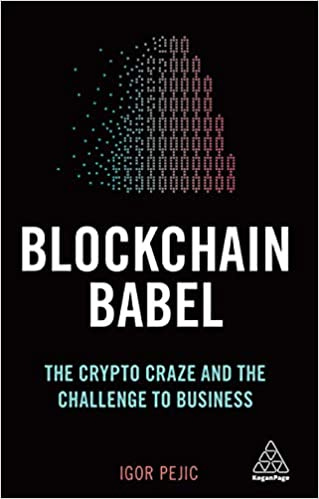



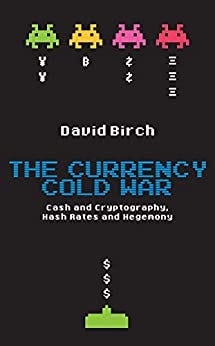


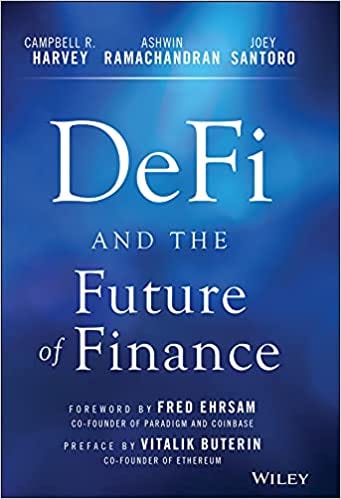

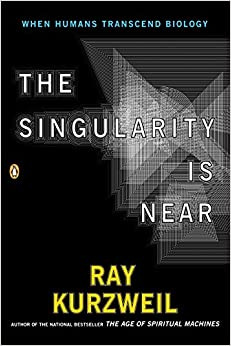
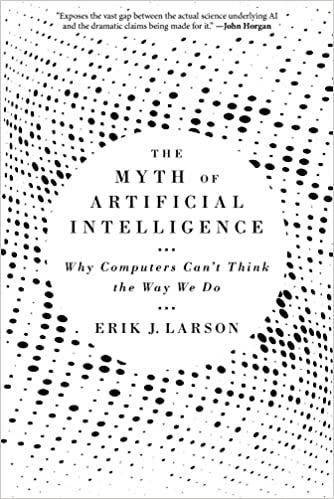
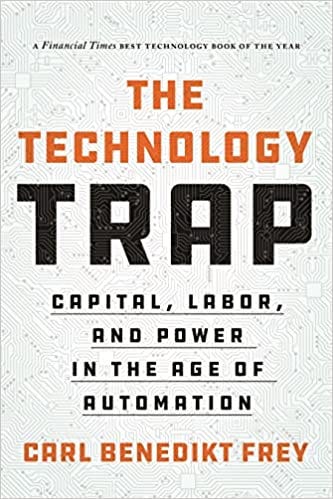
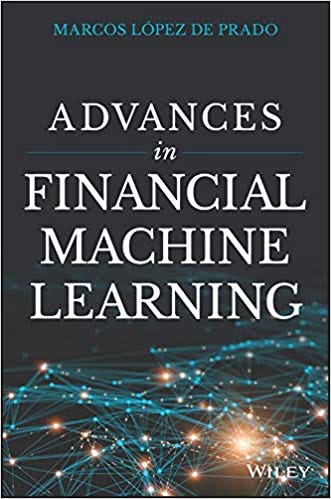
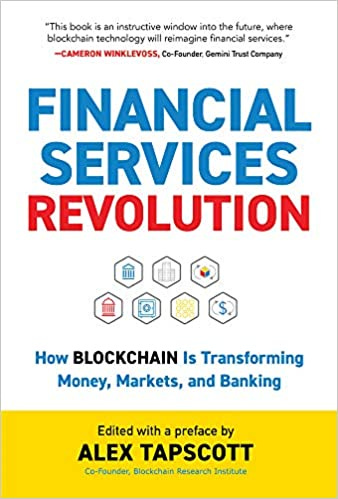
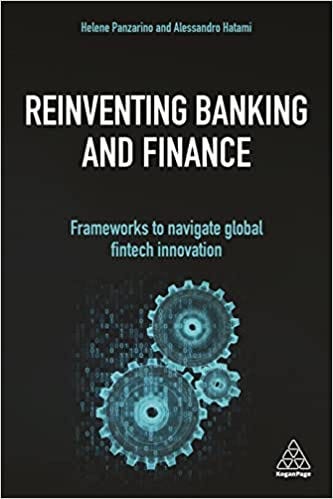

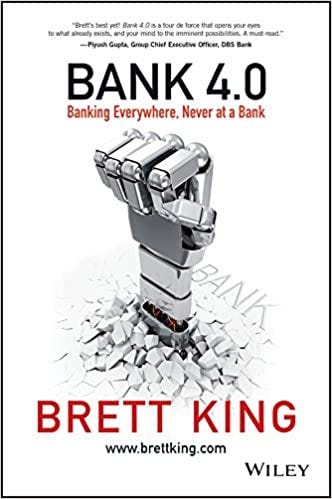
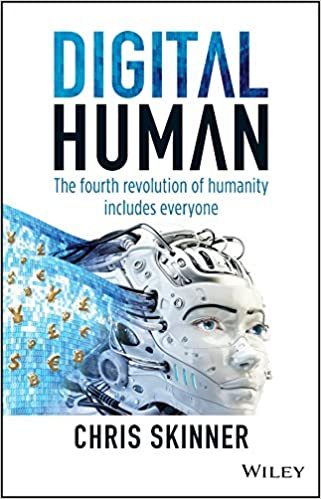


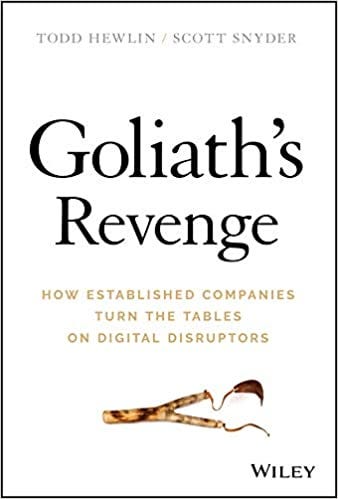


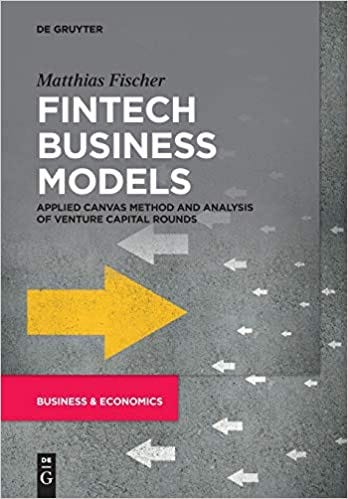
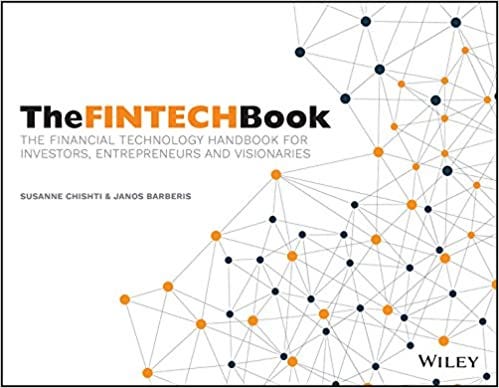
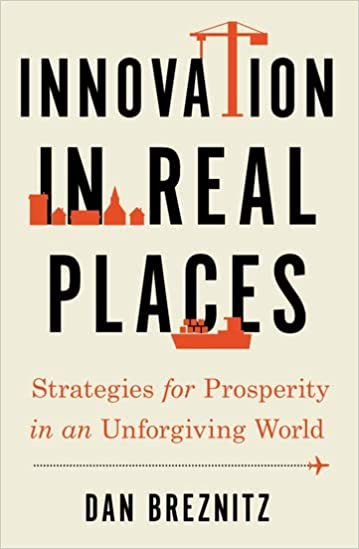

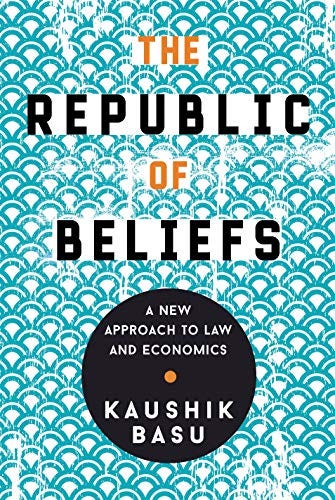
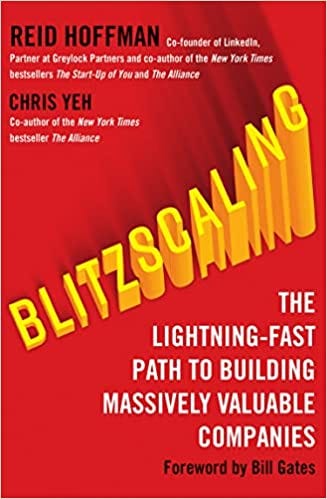
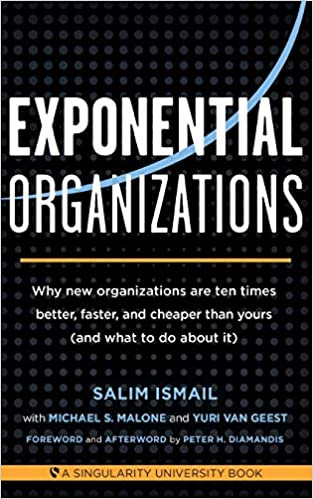
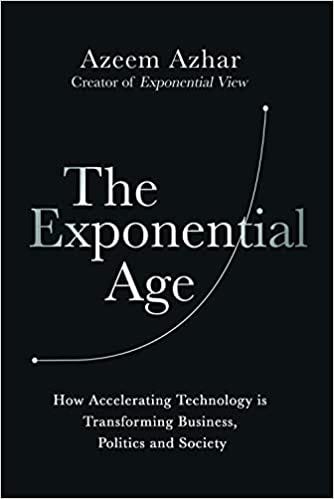


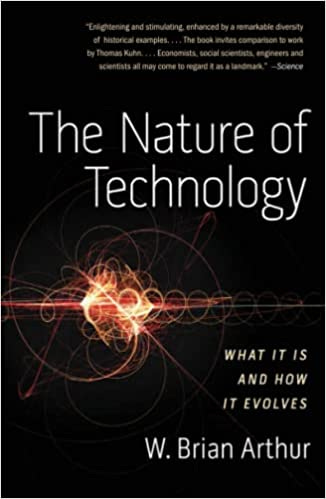


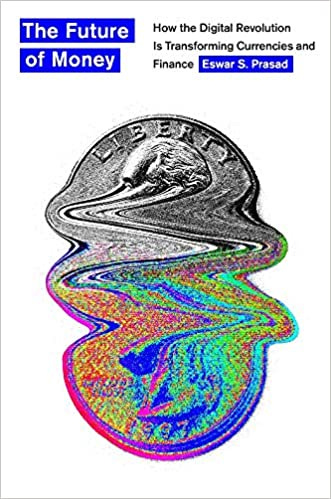

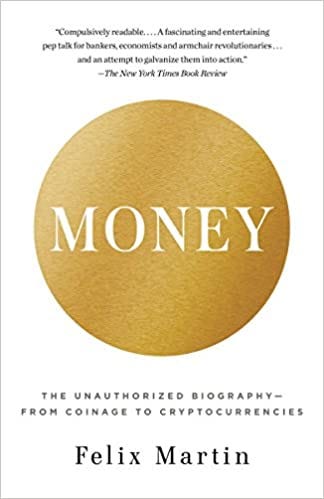
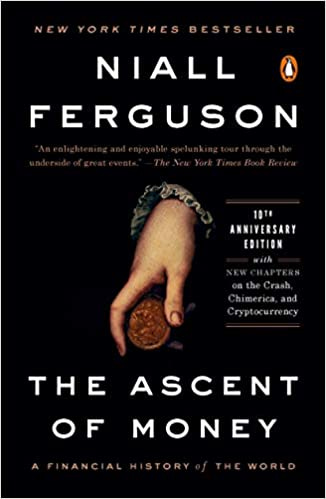
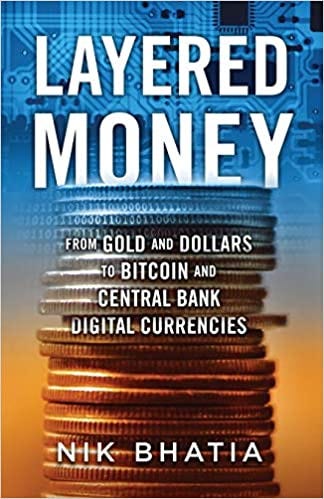
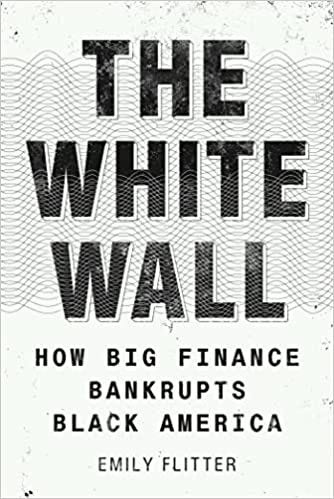

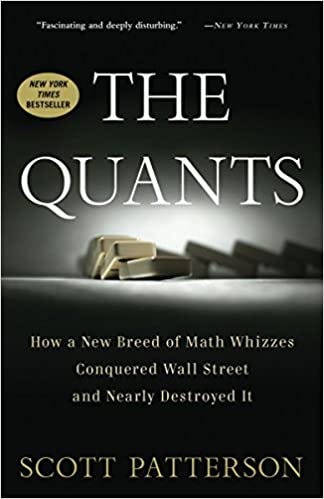

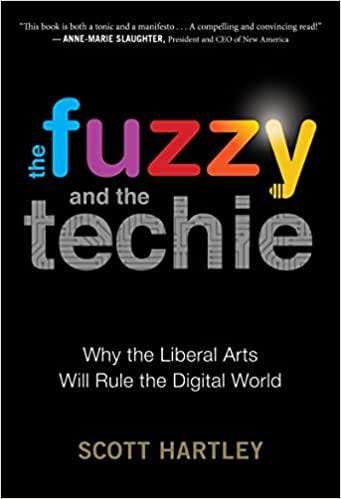
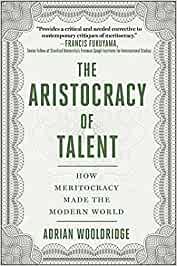
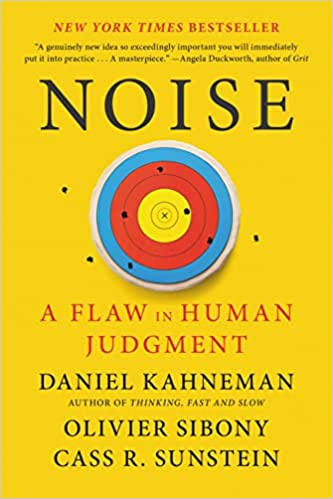
Such an amazing list. Could go on to 100.